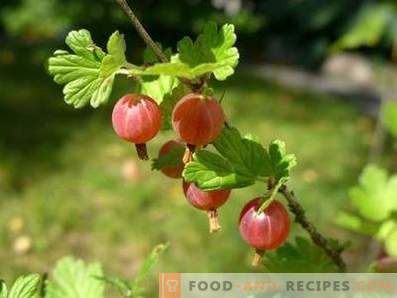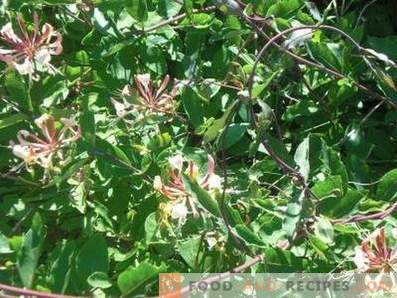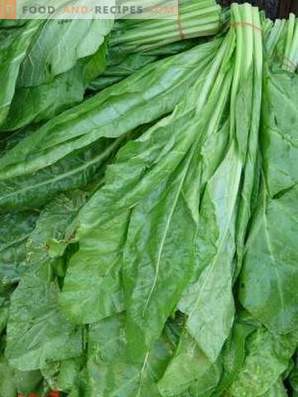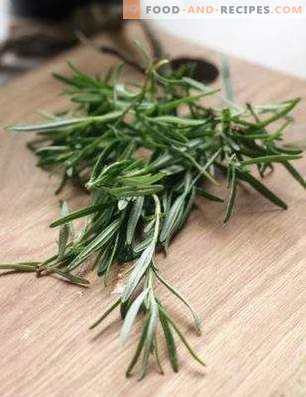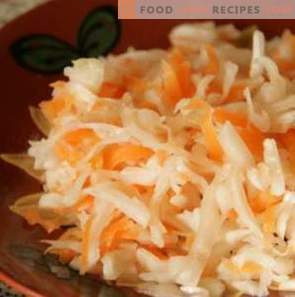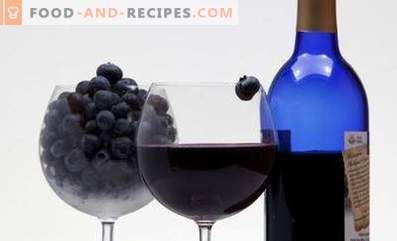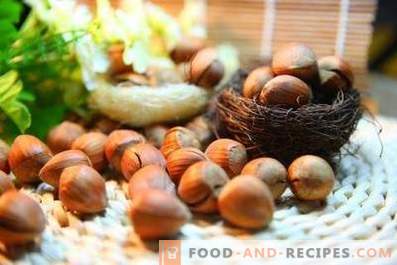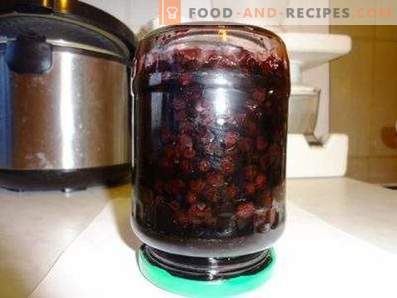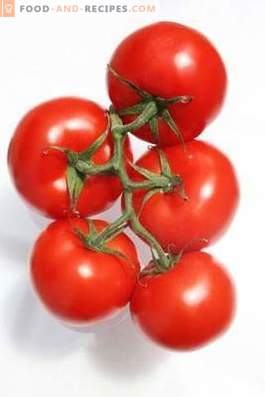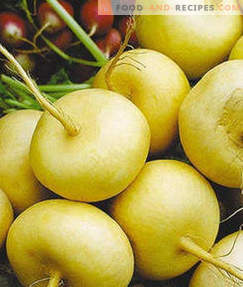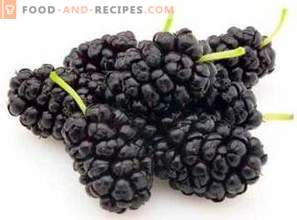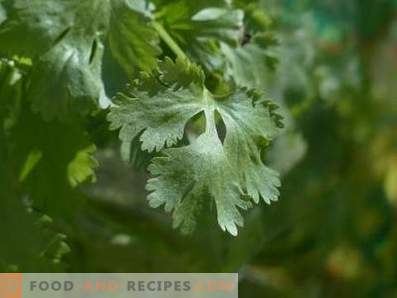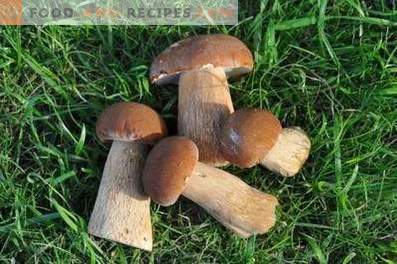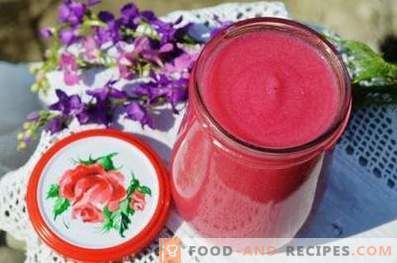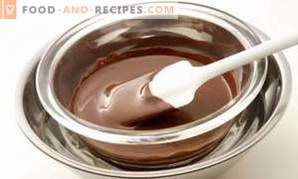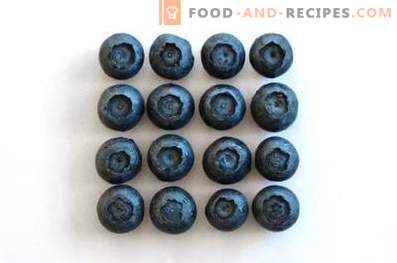
Blueberry is a shrub belonging to the genus of the heather family. Representatives of this species are found in all regions of the Northern Hemisphere. The plant prefers swampy, peat-rich soils of forests, tundra, upper mountain belt. It can form extensive thickets or grow as single bushes near the shores of lakes, streams and rivers.
Blueberries have a greenish-brown wood-bearing stem up to 100 cm long and a fibrous root. Oblong or ovate leaves of a plant reach 30 mm in length and 20 mm in width. The shrub blossoms at the beginning of summer with small drooping flowers of white or pink color. The fruits of the plant are round or slightly elongated sourish-sweet blue berries covered with a bluish bloom.
Blueberries are consumed both in raw and processed form. Juice, wine, liqueurs, preserves and confectionery fillings are prepared from the fruit. The ground part of the plant is used for the preparation of medicines according to the recipes of alternative medicine.
Nutritional value of blueberry and vitamins in its composition
Nutritional value blueberries (100 g):
- 0,989 g of proteins;
- 0, 494 g of fat;
- 6, 572 g of carbohydrates;
- 1, 364 g of organic acids;
- 2, 459 g of fiber;
- 87, 612 g of water;
- 6, 572 g of sugars (disaccharides and monosaccharides);
- 0, 266 g of ash.
Vitamins per 100 g of blueberry:
- E, alpha-tocopherol - 1, 344 mg;
- B1, thiamine - 0, 009 mg;
- K, phylloquinone - 18, 873 mcg;
- C, ascorbic acid - 19, 711 mg;
- B2, riboflavin - 0, 019 mg;
- A, retinol - 0, 284 mg;
- PP, niacin equivalent - 0, 312 mg.
Blueberry calories
100 g of fresh blueberry contains 38, 414 kcal. The caloric value of 100 g of juice obtained from the berries of this plant is 33, 462 kcal, wine - 68, 217 kcal, liquor - 189, 414 kcal. The energy value of blueberry jam - 271, 436 kcal per 100 g
Useful Items in Blueberries
Macroelements in blueberries (per 100 g):
- phosphorus - 7,894 mg;
- potassium - 50, 488 mg;
- sodium - 5, 799 mg;
- calcium - 15, 572 mg;
- magnesium - 6, 884 mg.
Trace elements in blueberries (per 100 g):
- iron - 0,761 mg.
Useful properties of blueberry fruits
- Blueberries are a natural source of ascorbic acid. With regular consumption of its fruits, the risk of developing scurvy and hypovitaminosis is reduced, the body’s immune defense is strengthened, and its resistance to infections is increased.
- Blueberry juice contains compounds that increase physical endurance, accelerate the recovery of the body after prolonged illness, surgery, heavy physical or mental stress. To achieve a therapeutic effect, it is enough to drink 1/4 cup of this drink a quarter of an hour before each meal.
- Blueberry fruits weaken the harmful effect of ionizing radiation, accelerate the excretion of radionuclides and heavy metals from the body.
- Berries of the plant have a positive effect on the work of the digestive tract, pancreas. Gastroenterologists recommend that people suffering from colitis, pancreatitis or diseases that develop against the background of low secretion of gastric juice, during the whole season, eat half a glass of fruit per day.
- The compounds present in blueberries weaken the negative effect of antibiotics on the functioning of the internal organs and systems of the human body.
- Blueberries are rich in antioxidants, which slow down the aging process of the body, improve the condition of the skin and its appendages, and prevent the development of cancer.
- Fruits of blueberry and juice squeezed out of them contain substances that accelerate metabolic processes in the body, preventing the formation of fat deposits. This low-calorie product can be safely included in the menu of individuals seeking to lose weight.
- Compounds present in blueberries enhance the effect of drugs that reduce the concentration of sugar in the blood. Therefore, people with diabetes, it is useful to eat a handful of these berries a day.
- Blueberries are rich in substances that strengthen the walls of blood vessels, which prevent the formation of cholesterol deposits on them, which regulate heart rhythm. With regular consumption of berries reduces the risk of arrhythmias, atherosclerosis, heart attack and other cardiac disorders.
- The systematic inclusion of blueberry dishes in the menu reduces the symptoms of rheumatism and arthritis.
- A decoction of dry berries (1 tablespoon per half liter of boiling water) is used to combat dysentery. Drink drink instead of tea without restriction on volume.
- In traditional medicine, blueberry juice is used to treat the initial stages of hypertension. People suffering from high blood pressure are recommended to drink by? glasses of this drink per day.
- It has been proven that regular consumption of blueberry helps to improve vision, prevent the development of disturbances in the work of the visual apparatus at high loads on the eyes (with long-term work in front of a computer monitor, reading, etc.).
- Ripe blueberries have antipyretic properties. From it, prepare therapeutic infusion: 4 tbsp. spoons of berries pour boiling water (? liters), add a little honey and insist 50 minutes. Ready to drink drink when the temperature rises instead of tea.
- Iron and other compounds that blueberries are rich in have a positive effect on the functioning of the blood system. Folk healers advise people suffering from anemia to drink half a glass of blueberry juice daily with the addition of 3 tbsp. l whey or sour cream.
- Blueberry juice has anti-inflammatory properties. When inflammation of the kidneys, lungs, bladder or other internal organs should drink half a cup of this drink per day. Diluted juice can be used to rinse with acute tonsillitis, laryngitis, dental diseases.
- Vitamin K, which is rich in blueberries, increases blood clotting.
- Blueberry contains a complex of compounds with soothing properties. The berries of this plant benefit people suffering from sleep disorders (insomnia, somnambulism, etc.), neurotic and mental disorders, mood swings, depression. Substances present in their pulp help reduce the destructive effect of stress on the body.
- Blueberry juice is an effective remedy for helminth infections. For therapeutic purposes, take half a glass of drink per day.
The benefits of blueberry leaves and sprouts
- A decoction of blueberry leaves (a handful of plant material per 2 liters of water, cook for 15 minutes) has light laxative properties.
- Young shoots of blueberry are used to treat diabetes. To prepare a decoction that lowers the level of sugar in the blood, a tablespoon of fresh grass is poured with a glass of water and stewed on the fire for 9-10 minutes. The medicine is taken on 3 tbsp. l in a day.
- Folk healers advise people suffering from cardiac diseases to drink weak decoction of blueberry stalks and leaves instead of tea. For its preparation 3 tbsp. l vegetable raw materials boil for 10 minutes in a liter of boiling water.
- Infusion of blueberry leaves is an effective expectorant.
- Blueberry leaves are prepared with cosmetic masks, narrowing enlarged pores, whitening the skin, fighting acne and unwanted pigmentation. Cleanly washed and scalded with boiling water leaf blades fray in a mortar or grind in a meat grinder, the resulting gruel spread on a sterile gauze cloth and pressed for 20 minutes to the problem area.
Contraindications and harm of blueberry
- Blueberries can provoke the development of allergic reactions. People with diagnosed allergies to berries or fruits should exclude the fruits of this shrub from the diet.
- Blueberries and juice obtained from it are contraindicated in violation of the motility of the biliary tract. Violation of this prohibition may lead to an exacerbation of the disease.
- Excessive consumption of blueberries can cause vomiting, nausea, diarrhea, bloating, flatulence, and headaches.
- Abuse of blueberries can harm the health of people suffering from thrombophlebitis or varicose veins.
- Pregnant women and mothers who are breastfeeding should be wary of consuming blueberries. Substances present in its pulp can provoke the development of intoxication or allergic reactions in a baby, adversely affect the development of the fetus.
